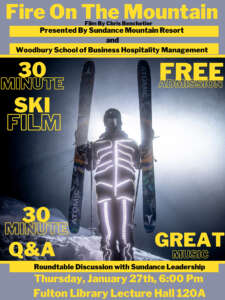Posters can be found all over Utah Valley University campus to celebrate the life and works of Doctor Martin Luther King Jr. and the strides made in Civil Rights. These posters feature black women in history that have made a difference and paved the way for some of the rights that we enjoy today.
Amelia Boyton Robinson, who was an adamant Civil Rights and American Activist, is highlighted inside the Student Life building. Robinson was born in August of 1911; she held black voter registration drives in Selma, Alabama, from 1930 to 1950. She was the first African American Woman Democratic candidate to run for an Alabaman seat in congress. Robinson led the march that became known as Bloody Sunday due to the brutal beating by Alabama state troopers. Robinson later won the Martin Luther King Jr. Medal of freedom.
These posters bring us back to American history and remind us who we want to be as Americans and help us to recognize areas of improvement today. Another woman featured was Marsha P. Johnson, born Malcolm Michaels Jr., Marsha faced not only the prejudice of being black but was also bullied from a young age for dressing as a girl. Students today can relate to the issues that Marsha faced in 1969 as she was involved in the Stonewall Uprising.

Though these people lived in a time before our own, the issues they fought are still issues today. UVU is honored to feature these women all over the school.
This feature is just a part of what the African Diaspora Initiative group on campus does. According to the group’s mission statement, “ the initiative’s purpose is to ensure student retention and completion through partnerships that allow for our African/Black students to receive mentorship opportunities from professionals in the community and/or staff and faculty at UVU, further cultural validation through intentional programming, and seek opportunities for students to engage in African Diaspora communities within our serving region or across the nation.”
As the celebration of Doctor King takes place, take some time to walk around campus, and look at the great women in black history. Buttons are offered at each station as a keepsake to remember all year long.
“Life’s most persistent and urgent question is, ‘What are you doing for others?” Dr. Martin Luther King, Jr.





